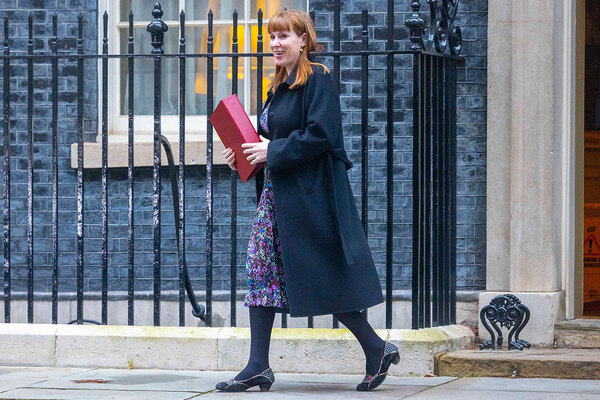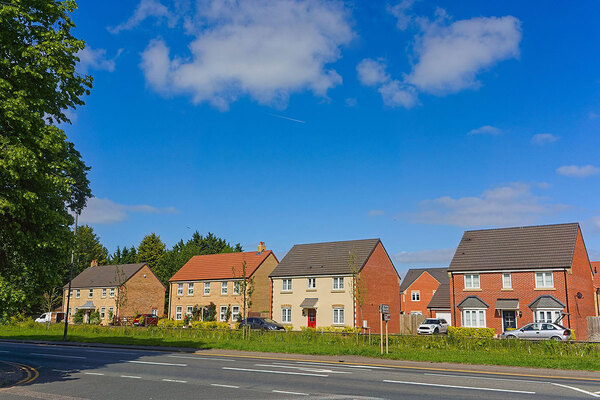Spring Budget: sector groups call for £2.8bn decarbonisation fund balance, to bring ‘certainty’
Sector bodies have urged the government to release the remaining money under its £3.8bn Social Housing Decarbonisation Fund (SHDF), among a series of pleas ahead of the Spring Budget.
Chancellor Jeremy Hunt is due to make his Budget speech on 15 March.
The National Housing Federation (NHF) and the G15 have both called on ministers to distribute the funds ahead of time to give “funding certainty” to landlords which are working out retrofit strategies.
So far the government has committed around £980m of the £3.8bn promised through two waves. The SHDF, a 2019 manifesto commitment by the Conservative Party, had been promised over 10 years.
Writing for Social Housing this week, Geeta Nanda, chair of the G15, said: “The government should bring forward the remaining money earmarked for the Social Housing Decarbonisation Fund. The £3.8bn fund would allow faster progress and ensure residents’ bills go down.”
G15 members, London’s largest landlords which operate around 650,000 homes collectively, currently estimate that bringing their stock up to net zero standards will cost up to £11bn.
The NHF said in its submission to the Treasury that releasing the funds would provide “longer-term funding certainty”, grow the economy and create “hundreds of thousands of new jobs across the country”.
The organisation said: “This would unlock supply chains and give housing associations the long-term confidence and certainty to plan, contract for and deliver the large-scale retrofit projects required to meet net zero by 2050.”
A balance of around £2.8bn remains in the promised SHDF pot, after funding released to date of £979m (or £1.04bn, including the initial £61m ‘demonstrator’ scheme prior to the launch). Wave 1 saw £179m allocated for projects to be completed in 2022 and 2023, while Wave 2 made a further £800m available, to be spent before the end of March 2025.
Housing associations are weighing up the money they will have to spend on decarbonising homes against the more pressing issues of building safety, tackling damp and mould, and building new homes.
This includes freeing up capacity to invest through negotiating flexibility on loan covenants – with 22 providers reporting they had obtained waivers in respect of energy efficiency or decarbonisation works, in the latest quarterly survey by the English regulator.
The Chartered Institute of Housing (CIH) said the government should “make good” its commitment to provide the full £3.8bn from the SHDF, while calling for more to be made available in the next Spending Review.
Concern has also been growing about the the number of qualified retrofit specialists. The NHF said the government must “implement a comprehensive national retrofit strategy to scale up locally led initiatives and deliver joined-up action on retrofit skills development”.
On new homes’ development, the groups asked for more grant funding to help build more social housing.
The CIH said investment should be increased “immediately” to allow an extra 10,000 social rented homes a year to be built. It said the current Affordable Homes Programme (AHP) should be increased by 28 per cent to £2.44bn each year, based on a cost of £70,000 in grant funding per home.
Existing homes replacement
The G15 also said grant funding should be increased but called too for the reintroduction of funding for replacing existing homes through future funding programmes.
“Allowing Recycled Capital Grant Funding (RCGF) to fund building safety works has been added to Homes England’s capital funding guidance, and this move should be extended to all aspects of the Affordable Homes Programme,” the group said.
The NHF said “more flexibility on existing funding” should include allowing for replacement of homes so that “high-quality, housing-led regeneration is delivered where it cannot be funded otherwise”.
Homes for the North, an alliance of 16 housing associations across the North of England, said the government should also revise Homes England’s rules on ‘net additionality’ to bring more homes into scope for replacement.
“Homes England’s net additionality rules are a barrier to housing associations in the North, and elsewhere, seeking to provide the right homes for their customers, support local economic growth, create high-quality places and cut the environmental impact of their portfolios,” the group said.
“The result is a large proportion of public housing funding being used to deliver new homes on greenfield sites, irrespective of the wishes of local people and ignoring the wider need to regenerate brownfield land and level up local areas.”
Homes remediation
Meanwhile, on the issue of post-Grenfell building safety, the NHF is calling on the government to pursue contractors in the same way it has developers over liability.
“We strongly support the government negotiations that have led to the largest developers pledging to remediate the defective buildings they constructed,” the group said in its submission.
“We are calling for the government to extend these negotiations to contractors, which have also constructed defective properties for housing associations that should have met regulatory requirements.”
£980m
Amount committed by government through SHDF so far, in two waves (out of £3.8bn total)
£800m
Amount committed in Wave 2
£11bn
Cost for G15 members to get their homes up to net zero
Hyde Group won a high-profile case against a contractor last year, while other large landlords have also taken legal action against firms they have been pursuing over historical defective work.
The NHF acknowledged the Building Safety Act allows housing associations “additional legal routes” to pursue contractors. However, it said these are “untested and could require lengthy and costly legal proceedings”.
It added: “Currently, housing associations have to pick up all or part of the bill for remedial works where contractors are not facing their responsibilities.”
The G15 also urged the government to set a “definitive timeline” for when its Decent Homes Standard review will be completed.
“With the multiple pressure on providers’ resources… the government must outline what funding and financing mechanisms it will provide the sector to support improving the decency of homes, in addition to the significant resources already being invested by providers directly,” the group said.
Cost of living
The groups also called on the Treasury to do more to help struggling residents with the cost of living crisis.
On energy bills, the NHF urged ministers to introduce a “social tariff” to protect vulnerable energy consumers from volatile energy prices from April 2024 onwards.
The NHF said: “Targeted support for those who need it most, including people on means tested benefits, disability benefits, and Carer’s Allowance, alongside those still struggling with their bills but missing out on support from the welfare system, would help to address fuel poverty and would remove unfair differentials between different geographies and payment types in the market for low-income and vulnerable households."
The CIH said Local Housing Allowance (LHA) rates – the eligible rate of support available to private renters – should be restored to at least the 30th percentile and that there should be an annual uprating.
At the start of 2022-23, the LHA shared rate covered just 10 per cent of rents, or less, in seven out of every 10 local markets in England, according to figures from the Valuation Office Agency.
The Northern Housing Consortium (NHC), whose membership includes local authorities and ALMOs, echoed this plea. “The NHC and our members believe that a continued freeze on LHA would make it even harder for existing private renters to make ends meet, risking homelessness and making it increasingly difficult for local authorities to discharge their homelessness duties effectively – thereby increasing the use of expensive and unsuitable temporary accommodation, including bed and breakfast accommodation.”
The G15 said the government should remove the two-child limit in income-related benefits, scrap the five-week wait for the first Universal Credit payment and bring LHA rates back into line with the cost of homes. Ms Nanda said the changes would make a “real difference to so many”.
Sign up for Social Housing’s weekly news bulletin
Social Housing’s weekly news bulletin delivers the latest news and insight across finance and funding, regulation and governance, policy and strategy, straight to your inbox. Meanwhile, news alerts bring you the biggest stories as they land.
Already have an account? Click here to manage your newsletters.
RELATED









